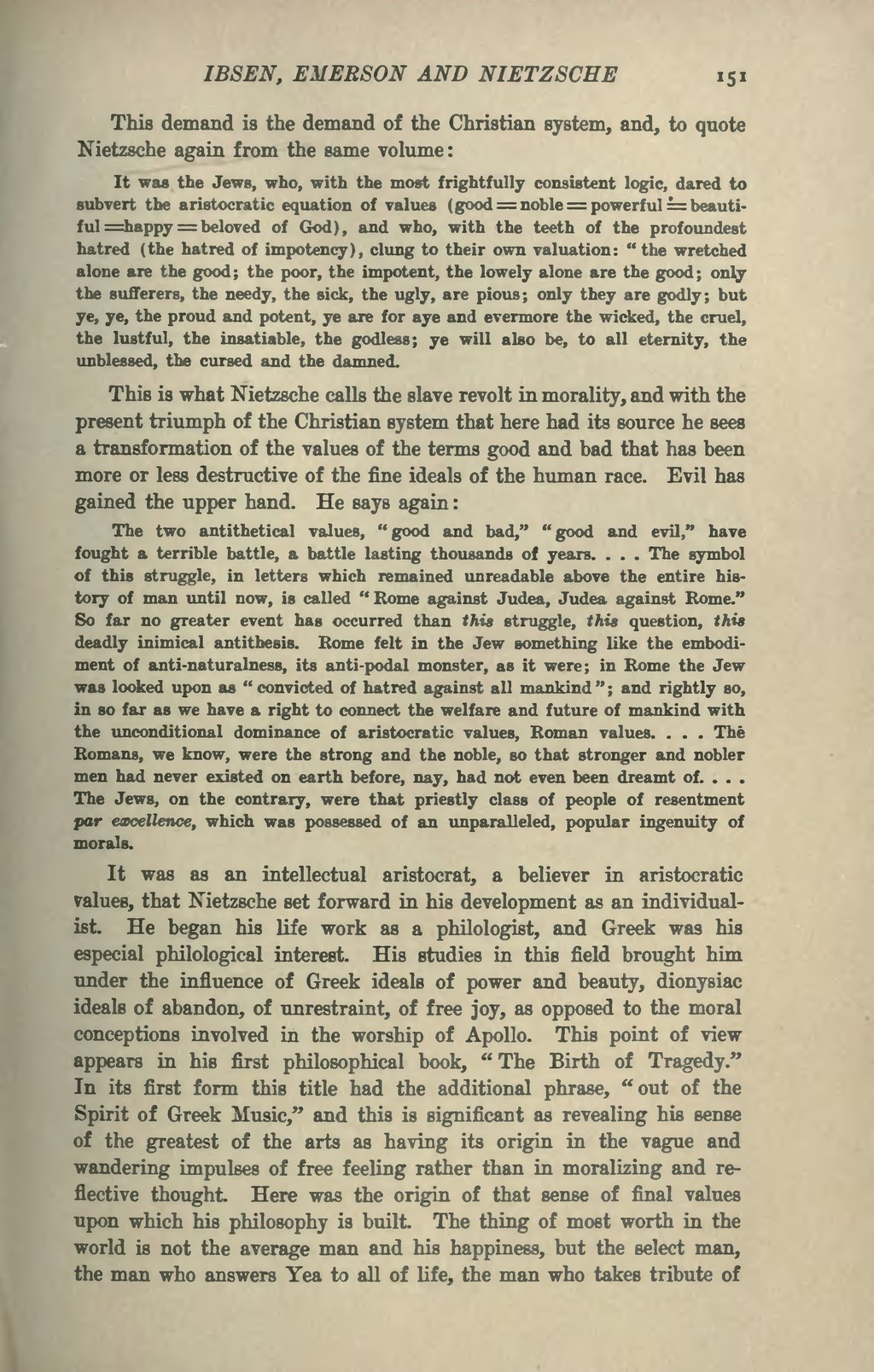This demand is the demand of the Christian system, and, to quote Nietzsche again from the same volume:
It was the Jews, who, with the most frightfully consistent logic, dared to subvert the aristocratic equation of values (good = noble = powerful = beautiful = happy = beloved of God), and who, with the teeth of the profoundest hatred (the hatred of impotency), clung to their own valuation: "the wretched alone are the good; the poor, the impotent, the lowely alone are the good; only the sufferers, the needy, the sick, the ugly, are pious; only they are godly; but ye, ye, the proud and potent, ye are for aye and evermore the wicked, the cruel, the lustful, the insatiable, the godless; ye will also be, to all eternity, the unblessed, the cursed and the damned.
This is what Nietzsche calls the slave revolt in morality, and with the present triumph of the Christian system that here had its source he sees a transformation of the values of the terms good and bad that has been more or less destructive of the fine ideals of the human race. Evil has gained the upper hand. He says again:
The two antithetical values, "good and bad," "good and evil," have fought a terrible battle, a battle lasting thousands of years. . . . The symbol of this struggle, in letters which remained unreadable above the entire history of man until now, is called "Rome against Judea, Judea against Rome." So far no greater event has occurred than this struggle, this question, this deadly inimical antithesis. Rome felt in the Jew something like the embodiment of anti-naturalness, its anti-podal monster, as it were; in Rome the Jew was looked upon as "convicted of hatred against all mankind"; and rightly so, in 80 far as we have a right to connect the welfare and future of mankind with the unconditional dominance of aristocratic values, Roman values. . . . The Romans, we know, were the strong and the noble, so that stronger and nobler men had never existed on earth before, nay, had not even been dreamt of. . . . The Jews, on the contrary, were that priestly class of people of resentment par excellence, which was possessed of an unparalleled, popular ingenuity of morals.
It was as an intellectual aristocrat, a believer in aristocratic values, that Nietzsche set forward in his development as an individualist. He began his life work as a philologist, and Greek was his especial philological interest. His studies in this field brought him under the influence of Greek ideals of power and beauty, dionysiac ideals of abandon, of unrestraint, of free joy, as opposed to the moral conceptions involved in the worship of Apollo. This point of view appears in his first philosophical book, "The Birth of Tragedy." In its first form this title had the additional phrase, "out of the Spirit of Greek Music," and this is significant as revealing his sense of the greatest of the arts as having its origin in the vague and wandering impulses of free feeling rather than in moralizing and reflective thought. Here was the origin of that sense of final values upon which his philosophy is built. The thing of most worth in the world is not the average man and his happiness, but the select man, the man who answers Yea to all of life, the man who takes tribute of
